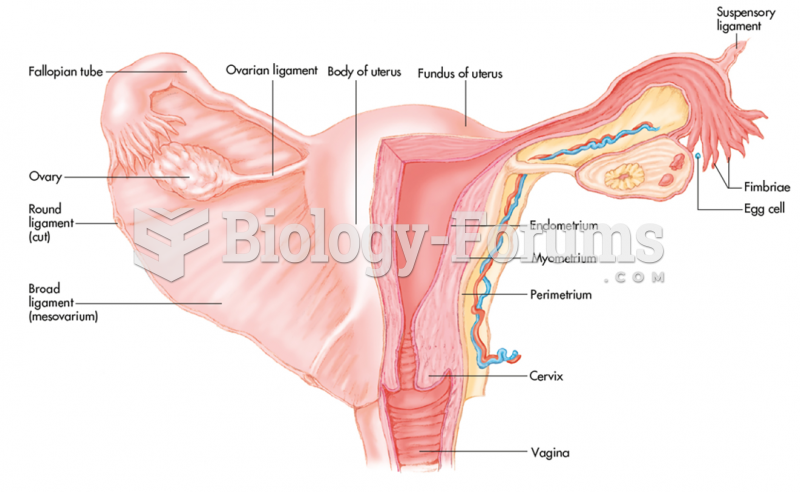This topic contains a solution. Click here to go to the answer
|
|
|
Did you know?
The liver is the only organ that has the ability to regenerate itself after certain types of damage. As much as 25% of the liver can be removed, and it will still regenerate back to its original shape and size. However, the liver cannot regenerate after severe damage caused by alcohol.
Did you know?
Cytomegalovirus affects nearly the same amount of newborns every year as Down syndrome.
Did you know?
Women are 50% to 75% more likely than men to experience an adverse drug reaction.
Did you know?
Asthma cases in Americans are about 75% higher today than they were in 1980.
Did you know?
Pubic lice (crabs) are usually spread through sexual contact. You cannot catch them by using a public toilet.







